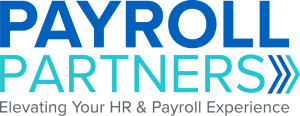As business environments continue to change amid Covid-19, engaging employees has been a priority for many organizations. The virus has heightened the need for employee engagement as companies are realizing the impact it has on continued productivity and performance. In the middle of the pandemic, research shows that companies are treating their employees better than ever. Employers realize the benefits of an engaged workforce. Engaged employees perform at higher levels, have higher productivity, 21% higher profitability, and fewer accidents. The management needs to introduce work methods and policies that nurture the emotional connections between employees and their workplaces and motivate them to remain committed to the company for the long term. Perks such as free lunches, fitness centers, daycare are great, but organizations looking to improve engagement should consider employee experiences together, such as onboarding, compensation, learning and development, scheduling, benefits, and how they drive long-term value to the employee strategy. Let’s review some strategies to drive long-term value for your organization.
Boost Employee Engagement in the New World of Work
Despite the past year’s hardships, employee happiness rose 5.4% between December 2019 and December 2020. How could this be? Organizations that responded well to the pandemic were a source of stability, security, and meaning for their employees. It is critical that organizations are continuously assessing trends and patterns in engagement across their workforce, setting up systems to support continuous feedback, and developing action plans to address problem areas. The following is a list of employee engagement strategies to consider while addressing the needs of the modern workforce.
Instill a Sense of Belonging in New Hires
Onboarding; also known as organizational socialization, is management jargon first created in the 1970s that refers to the mechanism through which new employees acquire the necessary knowledge, skills, and behaviors in order to become effective organizational members and insiders. Onboarding plays an important role in building employee engagement from day one. Employee onboarding is one of the most important functions of HR. In the context of today’s world, employee onboarding can be difficult as the workforce is dispersed or working remotely. Technology can be the connection. It can strengthen teams and reinforce culture. Many companies overlook onboarding missing critical elements such as filling out paperwork or signing up for training. Making the onboarding process easier can have a positive impact on the long-term engagement of an employee.
When Workers Want to Stay Remote, Companies Will Have to Rethink Company Policies and Practices
According to a recent survey of 2,000 adults who’ve been able to work from home during the pandemic, an overwhelming 87% want the ability to continue doing so after the risks of the virus subside. One in three employees doesn’t want to work for an employer that requires them to be onsite full-time, and nearly half say if their company doesn’t extend their current remote-work policy, they’ll quit and work for another one that does. The organization should recognize the changing needs f the workforce and update company policies as working arrangement shifts. Flexible scheduling will be essential as employees are adjusting to a new normal. Research has demonstrated that when employees have a greater sense of satisfaction with their work and their personal life, they tend to contribute more discretionary effort to their work. If you’re an employer and you’re not being accommodating, you’ll lose talent.
Are You Building a Culture of Trust?
We spend a third of our days at work on average. This work environment can either enhance or diminish employee morale and productivity in your company. Learning how to build trust with employees can improve productivity, engagement, and confidence. Trust in any organization works on three levels:
- At a company level in terms of culture
- At a team level concerning the relationships among the members
- At an interpersonal level between two people
According to a Harvard survey employees that are empowered feel that their job has meaning and is aligned with their values. One way employers can build trust is by empowering employees to have greater ownership of their projects and daily work. One of the most effective ways to establish trust is by giving employees a voice and listening to their feedback.
Setting Expectations With Your Team
Providing structure starts with defining a direction and setting clear boundaries. Your direction might come from your boss, your customers, your own vision for the future, or even from the collective wisdom of your team. However it comes about, it needs to be clearly articulated and spoken about often. It ensures you are all on the same page in terms of what needs to be accomplished. If employees do not clearly understand what they are accountable for, they may struggle to set priorities and achieve results. As the business environment continues to change to a new way of working, employers must continuously check in with their people and define expectations as they relate to business goals. A contributing factor to engagement and job satisfaction is whether an employee feels they are contributing to their company’s overall business goals. Employees who understand business goals and are made aware of timely shifts in business priorities are also better able to refocus their efforts when they understand what they are working towards.
Employee Promotion and Pay Policy Transparency
Transparency breeds trust. It’s not enough to tell people to work hard; you should explicitly outline what sort of things your HR team looks for when considering someone for a promotion. Having this explained in black and white will demonstrate to your employees that the decision is neither random nor biased. Employees want information on why they are paid a certain amount and how it relates to their role within the company. Employers should consider implementing regular pay reviews with relevant and transparent information about how the decisions are reached to harness trust and employee engagement.
Complexities of the New Normal
Our current, and future situation is giving employers an opportunity to rethink the way they are working with the goal of being agile, resilient, and fluid to move forward successfully. The pandemic required need for businesses to transition employees to fill other roles. Food and retail and hospitality will need to gain access to the right skill as they resume business activities after the health crisis. One noticeable change is that organizations are reaching out on a regular basis to check in with employees and see how they are doing. Business is moving away from annual surveys and towards pulse checks.
Employee Recognition Plays a Major Role In Engagement
Employees crave recognition from leaders. Leaders reap numerous benefits when they recognize excellent work. The main impact is obvious: by recognizing your employees for the work they’re doing, you will instantly boost employee engagement. When your team notices you’re recognizing their performance, they will want to keep repeating that behavior. Companies need to implement a way in which employees can show growth beyond a promotion. An individual employee recognition award offers your employees a chance to showcase their hard work.
Holistic Employee Benefits Plans Offer Long-term Value
In today’s health care environment, holistic programs are especially vital. Employees who are both mentally and physically healthy are more productive. The broader view includes the value of an investment in benefits and people, and the impact on metrics such as workforce attraction, employee retention, productivity, and company culture. High-value options and technologies are increasingly defining and shaping holistic employee benefit programs. the pandemic has placed a sharper focus on the need to take care of employees first. Employers can invest in technology to better support the workforce during difficult times by providing online benefits selection tools, to help employees customize their benefits packages to meet their individual needs.
Providing Flexible Pay Solutions
While the impact of COVID-19 on the workforce has brought to light just how important it is for employees to have flexibility with their paychecks, the need for flexible payroll solutions isn’t new. The gig economy first challenged traditional pay periods and checks as hourly workers became more prevalent, creating a need for a fast, efficient means to get paid—how and when employees wanted. The pandemic has reinforced this need by triggering organizations to move to virtual environments or consider layoffs and furloughs, giving employees even more reason to want their pay as it is earned, not just every few weeks, and through convenient channels. With these unexpected obstacles in mind, many employers are starting to reevaluate how to better deliver employee paychecks (how and when they want them) with flexible payroll options. There are many technology solution options that make flexible payroll possible for employees—and not just full-time.
Make employee engagement and ongoing process. One of the most common mistakes that leaders make is to approach engagement as a sporadic exercise in making their employees feel happy. Employees need ongoing purpose and development, not biannual perks, to achieve more for your organization. Employee engagement technology can provide managers with real-time data from surveys so they can identify trends and build specific action plans to respond accordingly.
Contact us (859-817-2280) for a Free Consultation/Quote!
Demo Our HCM Suite
View The Power of Our Fully Integrated Human Capital Management Suite
—
 About Payroll Partners
About Payroll Partners
As a leading payroll provider, we offer comprehensive solutions designed to fit your business. Our knowledgeable and experienced staff offers confidential and reliable assistance for every aspect of payroll. Count on us to deliver accurate and timely payrolls while accommodating your unique needs. From meeting your basic payroll requirements to management reports, and/or tax pay and file services, we can do it all.
> Learn More
